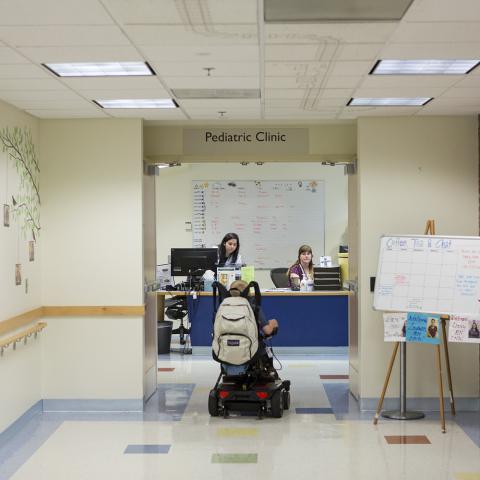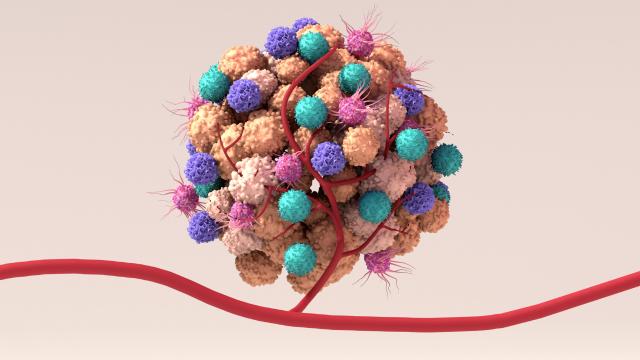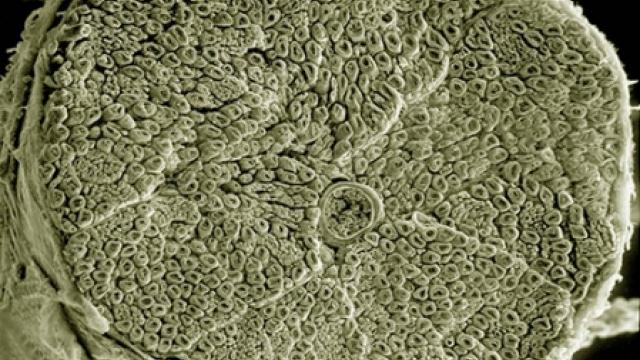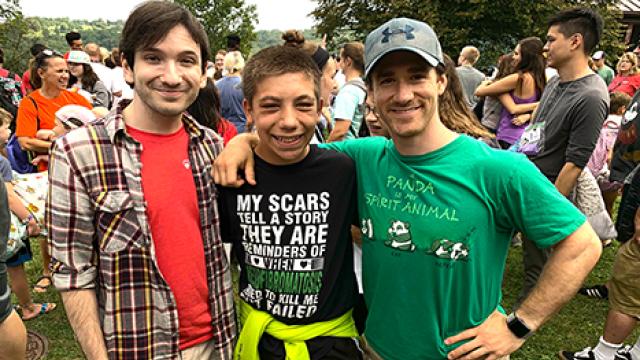
Pediatric Cancer
Image source: NCI Visuals Online
Neurofibromatosis type 1 (NF1) is a genetic disorder that causes tumors to form on nerve tissue. NF1 is usually diagnosed in childhood, and there are no effective medical therapies for most types of tumors. Up to half of the people with NF1 develop plexiform neurofibromas (PNs). Over time, PNs may transform into atypical neurofibromas (ANFs) and then into cancerous tumors that grow along nerves. At this stage, patients respond poorly to chemotherapy.
Andrea Gross, M.D., Assistant Research Physician in the Pediatric Oncology Branch, is leading a study of a drug, abemaciclib, to treat ANFs in children. Abemaciclib works by blocking the action of an abnormal protein that signals the ANF cells to multiply, thus helping to slow the growth of tumor cells. Researchers want to determine the best dose of abemaciclib for NF1 and to see how participants respond to treatment.
Clinicaltrials.gov identifier: NCT04750928
NCI Protocol ID: NCI-21-C-0011
Official Title: A Phase I/II Study of the Cyclin-Dependent Kinase(CDK)4/6 Inhibitor Abemaciclib for Neurofibromatosis Type 1 (NF1) Related Atypical Neurofibromas
The Center for Cancer Research is NCI’s internal cancer center, a publicly funded organization working to improve the lives of cancer patients by solving important, challenging and neglected problems in cancer research and patient care. Highly trained physician-scientists develop and carry out clinical trials to create the medicines of tomorrow treating patients at the world’s largest dedicated research hospital on the campus of the National Institutes of Health in Bethesda, Maryland.
For more information on CCR clinical trials click here, and subscribe to have the latest CCR clinical trials sent directly to your inbox.


